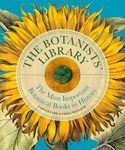![A Lab for All Seasons A Lab for All Seasons]()
Click to have a closer look
About this book
Customer reviews
Biography
Related titles
About this book
The first book to chronicle how innovation in laboratory designs for botanical research energized the emergence of physiological plant ecology as a vibrant subdiscipline
Laboratory innovation since the mid-twentieth century has powered advances in the study of plant adaptation, evolution, and ecosystem function. The phytotron, an integrated complex of controlled-environment greenhouse and laboratory spaces, was invented by Frits W. Went at the California Institute of Technology in the 1950s, setting off a worldwide laboratory movement, and transforming the plant sciences. Sharon Kingsland explores this revolution through a comparative study of work in the United States, France, Australia, Israel, the USSR, and Hungary – in the latter two, offering new interpretations of the response to Lysenkoism in Communist states.
These advances in botanical research energized physiological plant ecology. Case studies explore the development of phytotron spin-offs such as mobile laboratories, rhizotrons, and ecotrons. Scientific problems include the significance of plant emissions of volatile organic compounds, symbiosis between plants and soil fungi, and the discovery of new pathways for photosynthesis as an adaptation to hot, dry climates. The advancement of knowledge through synthesis is a running theme: linking disciplines, combining laboratory and field research, and moving across ecological scales from leaf to ecosystem. A Lab for All Seasons also charts the history of modern scientific responses to the emerging crisis of food insecurity in the era of global warming.
Customer Reviews
Biography
Sharon Kingsland is professor emerita in the Department of History of Science and Technology at Johns Hopkins University. She is the author of two previous books and has coedited two essay collections. She lives in Baltimore, MD.
By: Sharon E Kingsland(Author)
385 pages, b/w photos, b/w illustrations
"Sharon Kingsland has provided a brilliant, incisive, and wonderfully original account of the development of our understanding of plant evolution in a physiological context."
– Peter Raven, author of Driven by Nature: A Personal Journey from Shanghai to Botany and Global Sustainability
"An exceptionally thorough, readable and enjoyable study of plant science's embrace of the phytotron, unpacking its significance in the making of physiological ecology."
– Dominic Berry, coeditor of Narrative Science: Reasoning, Representing and Knowing since 1800
"A unique and wide-ranging history of the excitement, high expectations, big science, and interdisciplinary research in plant physiological ecology in the post–World War II era, which were kick-started by the development of the phytotron."
– E. A. Johnson, University of Calgary
"An engaging narrative through historian's eyes of the emergence of plant ecophysiology – an interplay of ideas, of careers and ambitions, and of phytotrons bringing people and disciplines together."
– Mark Westoby, Macquarie University




































